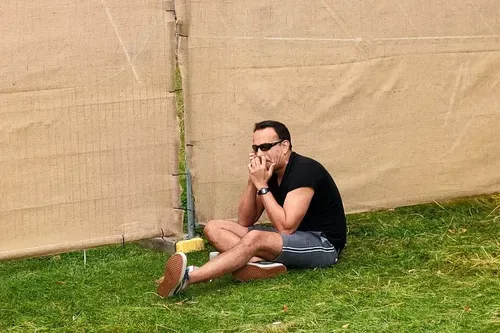Review: Speaking My Mind by Leo Varadkar

In a review of this book, someone quipped that former Taoiseach Leo Varadkar notices the flaws in others but not himself.
Journalists can be quick to throw out an edgy remark, but there is an element of truth to it. Varadkar, for all intents and purposes, was an OK Taoiseach. He didn't cast the country into ruin, nor did he establish a vision for what Ireland could be, setting it on the path to increased prosperity. In fact, you would be hard-pressed to say that he changed the course of the state at all. He didn't leave in scandal or disgrace, but left in the same way as Enda Kenny before him, someone who moved Ireland on. Overall, he was fortunate that a large government surplus masked the many flaws in Ireland's governance under his leadership.
In his tome, published just 18 months after his departure, Varadkar laments many of the first-world problems that plagued his tenure, including a lack of government jets, with the current government jet being somewhat outdated. So old that it could only seat an entourage of 8, and the bathroom didn't have a sink; instead, the sink was located where the luggage was stored, which meant that suitcases could get wet.
He talks about the damp smell that plagues government buildings as you walk from one area of the Dáil campus to the other.
He regrets offending Gareth Fitzgearld, who was of Fine Gael royalty and whose reputation outside of Fine Gael is one of disdain.
These are just a few examples of his non-problems, and the concern about the citizens of Ireland rarely shines through unless it happens to be a media topic.
His early story is relatable to me. My dad was a farmer, and I can certainly relate to the fact that work never stops at 5 when you run a business, but that early life can't gloss over his later life.
Throughout his time in government, he oversaw a worsening housing crisis that disproportionately affects lower-income households(and many middle-class people as well). The actions of the vulture funds were facilitated by Fine Gael, which put thousands of hard-pressed working people in unspeakable distress. While praising Joan Burton, he forgets to mention that the JobBridge scheme was exploited by many scrupulous employers to avoid paying the minimum wage for jobs.
When discussing the water charges, he states that they were the right thing to do, implying that the public simply didn't understand. There is no mention of the many issues highlighted by campaigners, including the privatisation of water, pay-per-use charges, the unfair burden on lower-income households, and the large amount of money Irish Water has spent on branding compared to actual infrastructure and planning. That is all glossed over because Varadkar is uncompromising in his righteousness.
He speaks of his regrets about how he handled Frances Fitzgearld, omitting the fact that she didn't support McCabe, the Garda whistleblower, as members of his own institution tried to label him a pedophile.
Now, was he all bad? Of course not, in many ways, because of his lack of vision and action, Ireland maintained its economy(albeit our public spending has seen a dramatic upsurge since 2017), and some positive social reforms took place. He is quick to credit himself with the Yes vote on both the Abortion and Gay Marriage referenda, but seems to forget the thousands of Irish people who made it happen along the way, including many who flew from around the world to make it happen.
In many ways, I wonder if Varadkar thought about the people at all. It seems that he was more concerned with perception and his friends than the Irish people. To such an extent that he spent a substantial amount of tax money on a spin unit. This book is a continuation of that eagerness to portray an image of a historical leader(something which he is open about in the book). He willingly throws former colleagues under the bus to preserve his own standing. Occasionally, he veers close to self-reflection but turns the wheel at the periphery of reflection.
Varadkar, in many ways, was the lucky Taoiseach. He inherited an incredible economy from Enda Kenny with just 2 major problems to resolve: health and housing. By the time he left office, there were four major problems with immigration and a surge in crime added to the mix.
He was fortunate to have good colleagues, such as Simon Covney, during Brexit and was able to delegate to Tony Holohan during the pandemic (even though he accused Holohan of arrogance). He was gay at just the right moment, when being publicly gay was not considered taboo. He didn't fight the fight that people like David Norris did. Instead, he got to stand on the shoulders of those activists.
However, when I reflect on Ireland in 2017 compared to Ireland today, I struggle to think of how life has improved for the majority. Aside from two social issues and the Luas cross-city, I would hazard a guess that many of my countrymen feel the same.